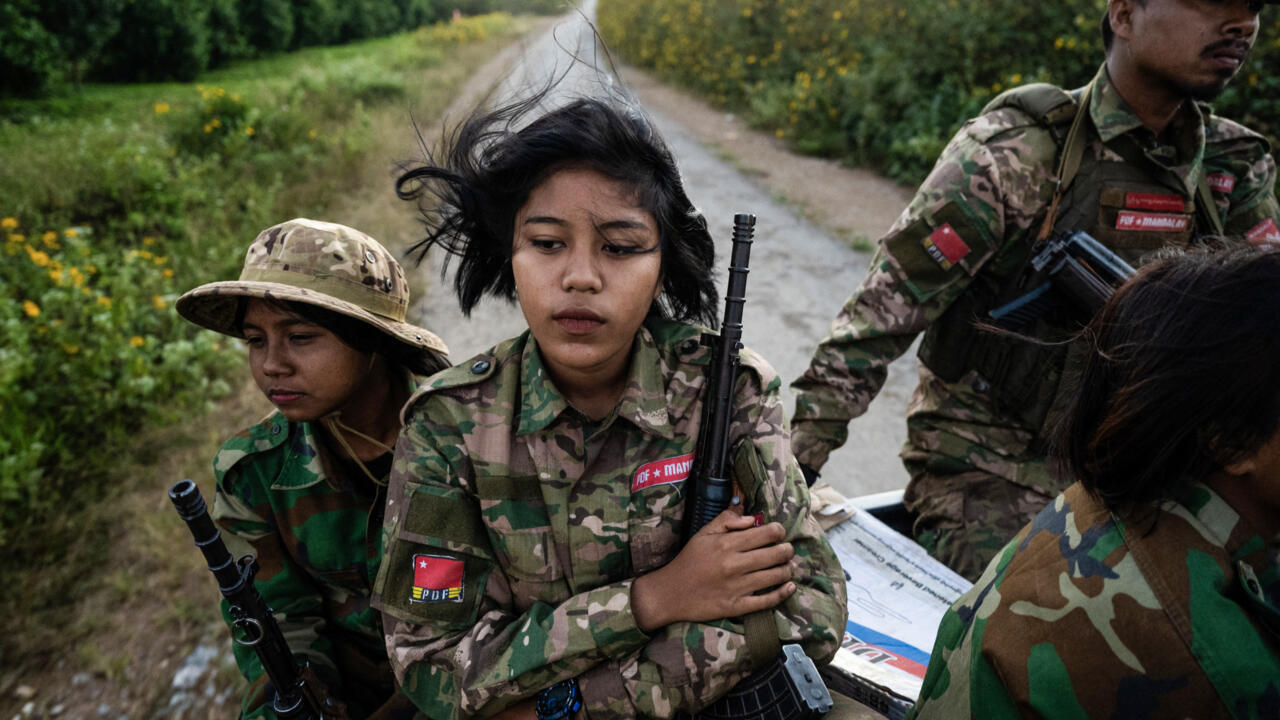Myanmar's military-appointed figurehead president – suspended from service since last year due to declining health – died on Thursday, a junta statement said.
Former general Myint Swe was named Myanmar's acting president in 2021, when the military deposed the democratic government of Aung San Suu Kyi in a coup, sparking a many-sided civil war.
The coup handed supreme power to armed forces chief Min Aung Hlaing, who last July also took over Myint Swe's ceremonial role as "acting president" as he suffered the effects of Parkinson's disease.
"President U Myint Swe passed away at 8:28am this morning," said a junta statement, adding the 74-year-old had died in a hospital in the capital Naypyidaw.
"It is hereby announced that the funeral of Pro Tem President U Myint Swe will be held as a state funeral."
Myanmar: Displaced by conflict, farmers grow opium poppies to survive
To display this content from YouTube, you must enable advertisement tracking and audience measurement.
One of your browser extensions seems to be blocking the video player from loading. To watch this content, you may need to disable it on this site.

02:39
State media said on Wednesday he was experiencing "weight loss, loss of appetite, fever and a decline in cognitive function" and had been admitted to intensive care.
Myint Swe was vice-president under the democratically elected government of Suu Kyi – who remains jailed four-and-a-half years on from the military takeover.
The coup sparked pro-democracy protests that were quashed, before activists quit the cities to wage guerrilla warfare – finding common cause with ethnic armed groups that have long resisted central rule.
Myint Swe became acting president on February 1, 2021, after the military arrested former president Win Myint along with Myanmar’s top leader, Aung San Suu Kyi, when the army seized power.
Myint Swe, a member of a pro-military party, took over the presidency under the constitution because he held the post of first vice president. Legal experts questioned the legitimacy of the move because Win Myint neither stepped down from his post nor was incapacitated.
Read moreExclusive: Myanmar's young people take up arms against junta
As acting president, Myint Swe chaired the National Defense and Security Council, which is nominally a constitutional government body, but in practice is controlled by the military. The council operates as the country’s top decision-making body related to national security, with the authority to declare a state of emergency and oversee military and defense affairs.
Myint Swe’s appointment and acquiescence to the army’s demands allowed the council to be convened to declare a state of emergency and hand over power to Min Aung Hlaing, who led the army’s takeover.
During his time in office, Myint Swe could only perform the pro forma duties of his job, such as issuing decrees to renew the state of emergency, because Min Aung Hlaing controlled all government functions.
Myint Swe, a former general, was a close ally of Than Shwe, who led a previous military government but stepped down to allow the transition to a quasi-civilian government beginning in 2011.
Myint Swe was chief minister of Yangon, Myanmar’s biggest city, under the quasi-civilian government between 2011 and 2016, and headed its regional military command for years under the previous military government, which stepped down in 2011.
During Buddhist monk-led popular protests in 2007 known internationally as the Saffron Revolution, he took charge of restoring order after weeks of unrest in the city, overseeing a crackdown that killed dozens of people. Hundreds more were arrested.
‘I can’t stand the injustice’: The Myanmar women taking up arms against the junta
To display this content from YouTube, you must enable advertisement tracking and audience measurement.
One of your browser extensions seems to be blocking the video player from loading. To watch this content, you may need to disable it on this site.

03:05
Min Aung Hlaing last week ended the nationwide state of emergency declared during the takeover, touting plans for an election in December as an off-ramp to the conflict consuming the country.
The move handed power from the office of the armed forces chief – occupied by Min Aung Hlaing – back to the president's office – also held by Min Aung Hlaing.
Opposition groups have pledged to boycott the poll, while a UN expert in June described the exercise as a "fraud" designed to legitimise the junta's continued rule.
No exact date has yet been set for the election.
(FRANCE 24 with AFP and AP)











 English (US) ·
English (US) ·